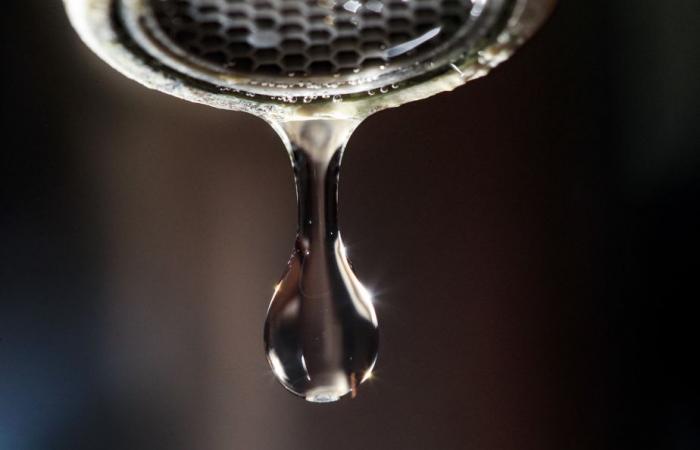The water inlet replacement program, aimed at preventing Montrealers from ingesting lead, which is harmful to young children, is much longer and more expensive than expected for the City.
Posted at 6:18 p.m.
In 2024, 2,500 lead water pipes will have been changed, a number which is decreasing from year to year. For example, in 2018, there were 4,000 replacements. The objective set at 5,000 per year has never been achieved.
The water service says it is keeping the deadline of 2032 to change the 79,000 pipes that have been identified in Montreal. But since there are still 41,800 replacements to be made, the rate would have to increase to 5,200 water entries per year over the next eight years to get there.
“The main issue is the increase in costs. Between 2019 and 2023, it is almost 300% increase,” explained Hervé Logé, director of asset management, during the presentation of the budget of his service to the Commission on Finance and Administration, the November 28.
In 2019, each replacement cost $6,300. In 2023, the bill had climbed to $25,000 per unit, according to the results of this program published in June 2024.
Combine construction sites
It is above all maintaining traffic around a construction site that is expensive: 443% increase between 2021 and 2023, indicates the water service document. These costs are much lower when the service entrances are replaced at the same time as other work, such as the rehabilitation of the aqueduct or road work: the unit cost then drops to $9,500.
However, only 30% of replacements are made during another project.
“We must first look at how to reduce costs, to then be able to increase the number of replacements. We must also take into account the capacity of entrepreneurs and social acceptability, if we do more work,” indicates Hervé Logé.
So far, 79,000 lead entries have been identified, but there are 45,000 remaining to be investigated. The total replacements to be made are therefore expected to increase.
“The screenings were to be completed in 2022,” recalled Vana Nazarian, opposition councilor at city hall, Monday during the municipal council meeting. “We still see objectives not achieved and dates pushed back. »
While waiting for their turn to arrive, Montrealers whose service line is made of lead must filter their water. The City offers filter pitchers to those who request them, a program that has cost $3.6 million since 2019.
Since 2019, homeowners must change the private portion of their lead pipes when replacing the municipal portion. The contractor mandated by the City can take care of the work. The fees for owners are approximately $3,700 for an average length of 2.6 meters, indicates the City. The bill can be paid in one installment or spread over 15 years, via the municipal tax account.
Lead can harm the intellectual development of young children. We must therefore avoid exposing them to this risk, just like pregnant women.
Consult this map to find out if your water inlet is lead.
Less paying water meters
While the City of Montreal has to pay more to replace lead water lines, it earns lower revenue than expected from water rates, now billed to non-residential properties equipped with meters.
Consumption calculated by water meters was expected to bring in 15 million in 2024, but revenues only reached 11 million, or 4 million less.
“The anticipated revenues were based on forecasts, but consumption was ultimately less than expected,” explained the director of the water service, Chantal Morissette, during the presentation of her budget to elected officials of the Finance Commission. and the administration, at the end of November.
In 2023, businesses, businesses and institutions, which consume a third of the water in Montreal, received a blank invoice based on their usage, to make them aware of future pricing. A real bill was sent to them in 2024, replacing the water tax that all owners must pay on their tax bill.
The City of Montreal hoped for a reduction in water consumption following billing, but there was no impact, reveals Mme Morissette.
“The question that we will eventually have to ask ourselves is whether the cost that is priced is sufficient to change behavior and reduce consumption,” she continues.
The installation of water meters cost the City 32.7 million, indicates the water department.






